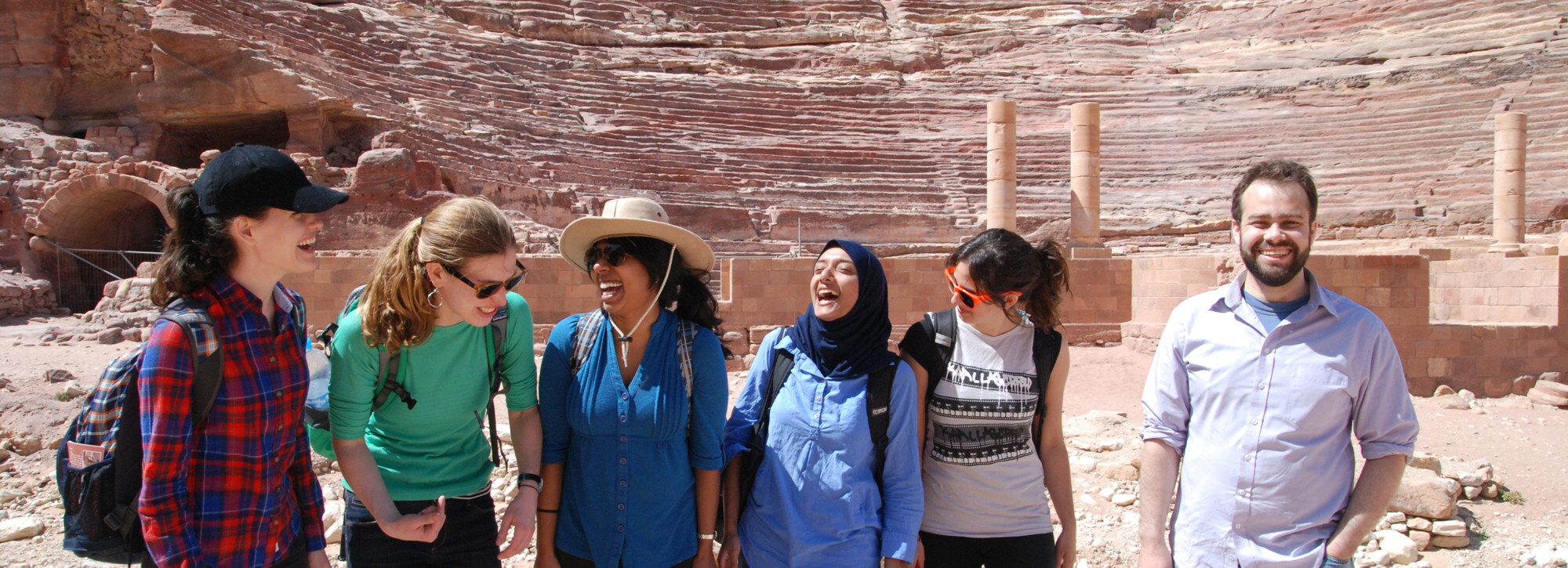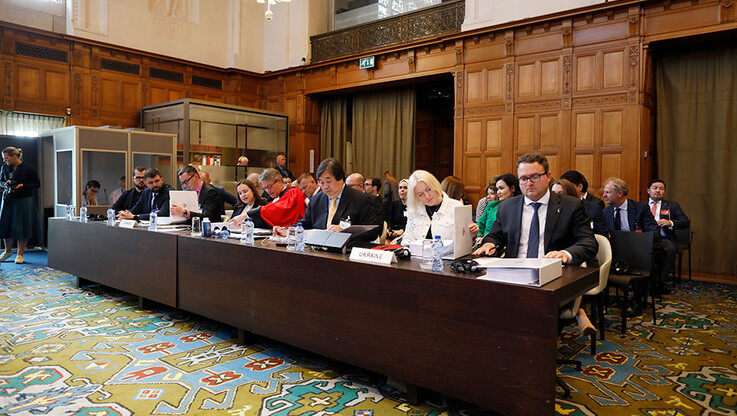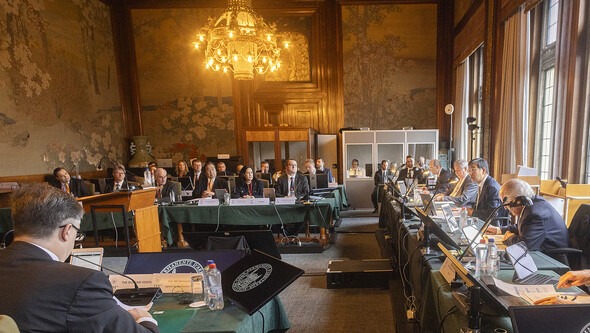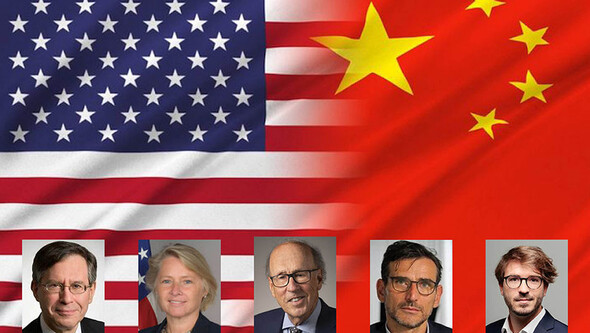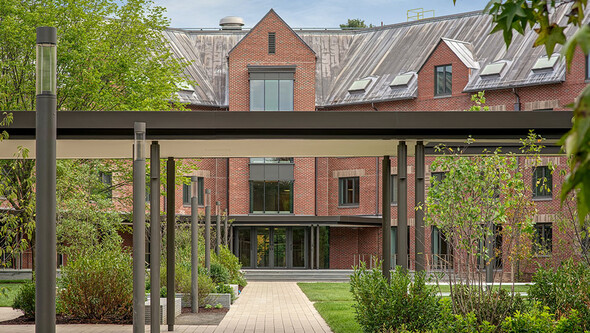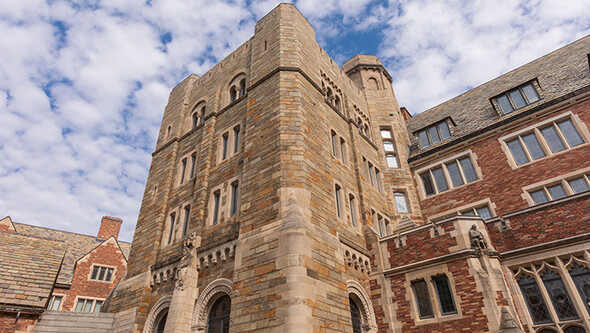Founded by Professor Paul Gewirtz in 1999 as the China Law Center, the Paul Tsai China Center is the primary home for activities related to China at Yale Law School. The Center is a unique institution dedicated to helping advance China’s legal reforms, contributing to the development of U.S.–China relations, and increasing understanding of China in the United States.
Established in 2012, the Global Health Justice Partnership (GHJP) is a joint program of Yale Law School and Yale School of Public Health that is pioneering an innovative and interdisciplinary field of scholarship, teaching, and practice to address global health disparities. Through a practicum course and fellowship program for graduate and professional students, GHJP trains the next generation of scholars and practitioners to tackle the complex interdisciplinary challenges of global health. Students work with local, national, and international partners at the interface of law, public health, medicine, and human rights to theorize, build analytical frameworks, create knowledge, and mobilize research to help drive the social change necessary for improving the health and wellness of people locally and globally. The GHJP also regularly organizes path-breaking conferences and events on critical health justice issues, in addition to providing a platform for individual and collaborative scholarship within and across the disciplines addressing these issues.
The Gruber Program for Global Justice and Women's Rights is a Yale University Program administered by Yale Law School consisting of four core components:
Under the direction of Law School Sterling Professors Owen Fiss and Anthony T. Kronman, the Abdallah S. Kamel Center for the Study of Islamic Law and Civilization at Yale Law School brings prominent scholars of Islam to the Yale campus for public lectures, seminar discussions, visiting fellowships, and visiting professorships. The center hosts a series of lectures on Islamic law and civilization and facilitates research fellowships, visiting professorships, and student fellowships.
The Latin American Series at Yale Law School brings distinguished speakers to discuss major legal, economic, and social issues concerning Latin America today. Recently the series featured a two-day visit by former Assistant Secretary of State for Western Hemisphere Affairs Arturo Valenzuela to discuss U.S. policy in the region and included other events on drug policy and the challenges of implementing human rights policy in Mexico, the student protests in Chile, change and continuity in Cuba, the controversial implications of the forestry code reform passed in Brazil, the progress of the recent land restitution program in Colombia, and developments in the ongoing prosecutions of crimes committed by military officials during Argentina’s Dirty War.
The Law School sponsors a student exchange with five universities in Buenos Aires, Santiago, Sao Paulo, and Rio de Janeiro. Students involved in the Linkage Program focus on a wide range of areas, including human rights, constitutional law, international law, and criminal law. Latin American students spend three weeks at YLS in February, and YLS students spend four weeks of their summer in either Argentina, Brazil, or Chile meeting legal scholars, practitioners, and government officials, visiting NGOs and law firms, and attending classes. Participating students often work with hosting law students and professors on course design and are encouraged to present seminars on topics of mutual interest at the universities they visit.
The Middle East Legal Studies Seminar (MELSS), directed by Professors Anthony Kronman and Owen Fiss, was established in 1998 as a forum in which influential judges, lawyers, and scholars from the region could exchange ideas and forge ties with one another, and with students and members of the Yale Law School faculty. The latest meeting took place in Jordan in January 2011. Past topics have included the concept of legal authority, fundamental rights, and religious pluralism. The Seminar has successfully brought together established and emerging leaders who are open to reform and committed to democracy in their own countries.
The Orville H. Schell, Jr. Center for International Human Rights provides students with the skills needed to advance the cause of human rights. The Center sponsors a weekly Human Rights Workshop, supervises the Lowenstein International Human Rights Clinic, organizes special events on human rights issues, and teaches other classes relating to human rights law. The Center also provides up to forty summer fellowships and several postgraduate fellowships for students wishing to engage in human-rights work.
The Robina Foundation Human Rights Fellowship Initiative provides support for human rights leaders at all stages of their careers: from first-year law students; to recent law school graduates; to senior human rights scholars and practitioners. The Robina Initiative offers scholarships, summer fellowships, post-graduate fellowships, and hosts scholars and practitioners at the School who carry out research, teach courses, and interact with students and faculty.
SELA is an annual academic gathering that brings together scholars and public intellectuals from Argentina, Brazil, Chile, Colombia, Mexico, Paraguay, Peru, Puerto Rico, Spain, and the United States. Inaugurated in 1995, SELA has sought to deepen understanding of complex theoretical issues, model a more discussion-oriented form of intellectual discourse than is the norm in Latin America, and create a venue for the formation of a professional community. A specific theme is determined for each seminar. Topics have ranged from democracy and the market (1997), to equality (1998), violence (2003), and executive power (2006). Each SELA has also come to include a session called “Democracy in the Americas,” a roundtable discussion focusing on a current issue of pressing public importance (the conduct of the Fujimori regime in Peru, for example, or General Pinochet’s extradition proceedings). In just a few years, SELA has become an intellectual center of gravity in Latin America.
The Yale Center for Environmental Law and Policy draws upon resources throughout the University to introduce students to environmental law challenges, policy tools, and research methodologies. The Center runs the Goldman Sonnenfeldt Environmental Protection Clinic, where law students address environmental law problems on behalf of client organizations. The Center also sponsors an Environmental Law and Policy Lecture Series, which provides a forum for visiting scholars, politicians, and environmental professionals.
The Yale Law School Center for Global Legal Challenges is an independent center that promotes the understanding of international law, national security law, and foreign affairs law. The Center aims to bridge the divide between the legal academy and legal practice by connecting the legal academy to public and private sector actors responsible for addressing international legal challenges.
The Center for the Study of Private Law promotes teaching and research in contracts (including commercial law, corporate finance, bankruptcy, and arbitration), property (including intellectual property), and torts at Yale Law School and in the broader legal community. (Research and teaching in Corporate Law at Yale is organized through the Center for the Study of Corporate Law.) The Center regularly engages with international legal issues and with scholars, practicing lawyers, policymakers, and other professionals from around the world. Throughout the year, the Center sponsors other events on international dispute resolution and other international and transnational aspects of private law.
